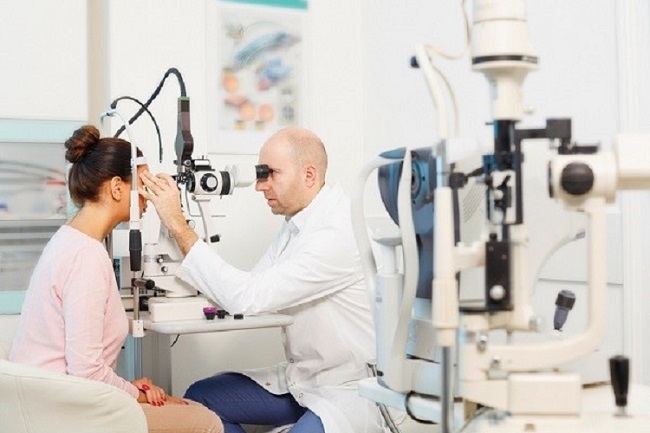Health & Fitness
Medi-Cal Vision Benefits – A Comprehensive Guide

If you are looking for a comprehensive guide on Medi-Cal Vision Benefits, you have come to the right place. This article will cover costs, providers, part-scopes and full-scopes, and more. It will also address things like ocularists and optometrists.
Full-Scope
So does Medi-Cal cover vision? For individuals who qualify, full-scope Medi-Cal vision benefits will cover eye exams, prescription glasses, and more. The program covers children as young as six and adults as old as 50.
Full-scope benefits include dental care, behavioral health services, hearing aids, in-home support, long-term care, and prescription drugs. It also provides dental benefits for children.
Adults can receive full-scope coverage for a routine eye exam every 24 months. The exam will check the health of your eyes and may involve a prescription for glasses or contact lenses. If you lose one or more of your eyes, you will be eligible for artificial eye materials and services.
Some people are eligible for full-scope coverage, while others qualify for partial. While full-scope benefits provide adequate coverage, partial-scope coverage is less comprehensive. You may have to pay a monthly premium depending on the patient’s income.
Part-Scope
You probably know about the state’s health care program, Medi-Cal. This program is meant to assist low-income residents with their healthcare needs. However, it may take work to get the coverage you need.
The first step is to find out if you qualify for the program in the first place. This involves gathering basic information about your income and assets for most individuals. Applicants can also contact their local human services agency for assistance. Those needing more granular information should seek the help of a benefits planner.
As a result, you will be given a benefits identification card (BIC) if you are eligible. Next, you will receive a notice of action in the mail. From there, you will need to fill out a renewal form and return it to the agency. Depending on your eligibility, you may be automatically renewed or need to go through the paperwork-laden process. Regardless of whether or not you need to renew your coverage, you can expect a decent range of benefits, from preventive care to prescription drugs.
As far as vision benefits go, you will be pleased to learn that there are several options. You can choose from a traditional Medi-Cal HMO or a Managed Care plan. While there are no guarantees, you can bet that your eye care will be covered. Some of these plans have long waiting lists, so you might consider opting for a different provider.
The biggest downside of this type of coverage is that it is only sometimes available on the same day. In addition, it is only sometimes the most convenient type of health insurance.
Costs
Your health insurance plan can cover a routine eye exam. However, most plans don’t cover eyeglasses or contacts. Thankfully, a vision discount plan can give you coverage for a fraction of the cost. Depending on your plan, you may even be eligible for a discount on laser eye surgery.
Most vision insurance plans offer discounts on a variety of services. Some may even cover various routine eye care, including checkups, eyeglasses, and contact lenses. It’s important to find out what’s covered before making an appointment.
Ocularists and Optometrists
Getting Medi-Cal vision benefits can take time and effort. You may be unable to get an appointment quickly, or your healthcare provider may not accept Medi-Cal.
A good resource for obtaining a Medi-Cal provider is the state’s DHCS directory. Alternatively, you can contact your vision plan directly to inquire about their providers.
Ophthalmologists are medical specialists who provide comprehensive eye care. They diagnose and treat eye diseases, including cataracts, glaucoma, retinal detachment, and other conditions. The ophthalmologist can also prescribe and perform surgery.
Optometrists are trained to conduct a comprehensive eye exam and prescribe eyeglasses, contact lenses, and other vision correction devices. Many optometrists work in a multi-specialty practice with ophthalmologists. Others operate independent practices. Some optometrists specialize in refractive surgery.
If you’re on Medi-Cal, you should have one routine eye exam every 24 months. It’s important to find out what services are covered before a patient makes an appointment. Additionally, check to see if a provider offers Vision Care Management. These providers provide additional services such as screening and vision training.
Despite the limited coverage, Medi-Cal’s vision benefits are adequate for most people. Those who need better coverage can buy a more comprehensive insurance plan.
Providers
The best way to determine which vision care provider in your area is the most qualified to help you is to contact your health plan. You can also check with your county human services office, as they may have a list of providers. In some cases, you may get a referral to a new provider. There are plenty of options to choose from.
You may even take advantage of a free routine eye exam. Make sure you use a network provider to get the most out of your benefits. Otherwise, you could be looking at a bill to pay. On top of that, it’s a good idea to make an appointment as soon as possible.















You must be logged in to post a comment Login